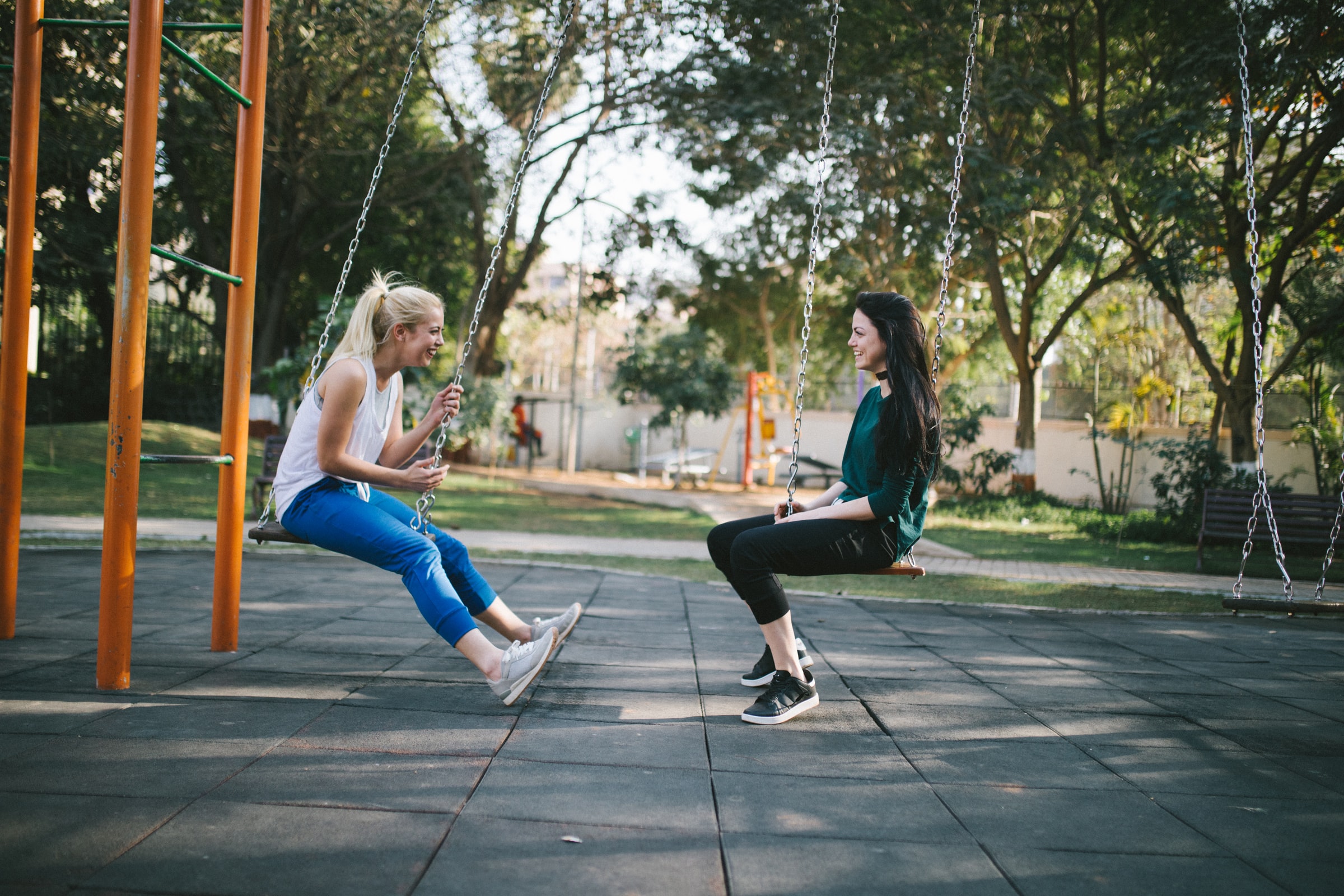5 Reminders for Reconnecting In-Person

Are you nervous to see others in-person again?
You’re not alone.
We may not be at the end of the COVID-19 pandemic, but we are starting to gain opportunities for in-person connection once again. Although this is great news, for many, this transition is often accompanied by the fear that we’ve forgotten how to function properly in a social setting.
You might be struggling with how to rekindle friendships that have been pushed aside this past year, or are looking for new people to craft connections with. Whichever circumstance you’re in, it’s important to have realistic expectations for when we finally see each other again.
Here are five encouraging reminders to prepare you for getting back to face-to-face.
1. It’s normal for in-person chats to feel more exhausting than they did in the past
Even short in-person interactions might leave you feeling drained. You probably haven’t been in social settings for over a year, so give yourself some grace if it doesn’t feel seamless.
Don’t be afraid of being honest with others when you encounter these feelings. Shame thrives on us hiding our isolating thoughts. By getting them out in the open, you’ll probably find a lot of people that feel the same way, and they will feel safer around you as a result. It doesn’t have to be a big deal, just casually addressing the awkwardness or exhaustion may foster bonding over this shared experience.
2. Rejection doesn’t happen as often as you think it will
Research demonstrates that when we are lonely, we are faster at picking up signs of potential rejection. If you’re feeling lonelier after this year of relative social isolation, you’ll probably be quick to sense that others “don’t like you”, even when that’s not the case.
This expectation and fear of rejection can often lead to half-hearted attempts at connection, as to protect one’s feelings, and often leads others to think you’re the one who is not interested. It’s a self-fulfilling prophecy of miscommunication.
If you’re feeling lonely and rejected before others have said anything negative, remind yourself that it’s normal to feel that way even if it’s not true and continue to pursue that connection if it feels right to you.
3. Your negative emotions are cues, not weaknesses
When we are feeling vulnerable, many of us will feel contempt for our emotions. You might think you’d be better off without them, but that’s not true. Just as hunger reminds you to eat, you can treat your loneliness as a cue to make social plans.
Loneliness is not the enemy. Allow yourself to feel what you’re feeling without judgement, and address the need being revealed by that feeling. When you’re feeling lonely, recognize it might be time to connect with someone. If you are looking for new people to connect with, keep reading to find out how.
4. Making close relationships takes time and repeated exposure
We all love the story of someone who met their best friend or romantic partner in an unlikely place, hit it off, and they have been inseparable ever since. In reality, the vast majority of relationships are not created this way. You might feel drawn to new people because of commonalities, but in most situations, proximity and familiarity are fundamental early on to make a connection stick.
If you are trying to make new friends, join an activity (e.g., a club, social group, volunteering) which happens regularly at the same place, same time, and with the sample people. Keep attending for a while before deciding whether you connect with the people there. One-time events usually won’t pay off for making friends. You often can’t tell whether you will connect with someone properly until you’ve had frequent exposure to them over a few months.
If you haven’t connected with anyone after that, you can choose to stop going and try a new activity. But if you’re new to something and going through the awkward phase with others, it’s probably worth sticking it out.
5. Emotional support comes in many forms
Part of the reason we need close connections is to have others we can rely on for support. Sometimes it can feel like the only way to gain emotional support is by having a long, meaningful conversation with a loved one, but that’s a misconception. There are many types of emotional support you might need depending on the circumstance, and you can ask for them.
You might be feeling overwhelmed and need help with your tasks. Maybe you’ve faced some challenges recently and you’re in need of validation or encouragement. You may just want to hang out with someone to relieve stress.
You can feel supported by others without having to pour your heart out, if that’s not what you need at the moment. Listen to your instincts and advocate for yourself.
Conclusion
Your wellbeing should be your top priority when attending university, and that includes your social wellbeing. There’s bound to be some awkward moments, so be patient with yourself in this transition.
If you are looking for more information on how you can find emotional support and how to prioritize other facets of your wellbeing, you can visit the Student Wellness Centre’s StepOne campaign. It can be challenging to adjust to living away from home while balancing school. The Student Wellness Centre created StepOne to target the areas of wellbeing that are often overlooked once school gets busy.
By: Summer Clarke
References
Loneliness | Psychology Today Canada
7 Ways to Feel Less Lonely and More Connected | Psychology Today
How to Have an In-Person Conversation | Psychology Today Canada
Life Events, Mental Health & Mental Illness, Relationships